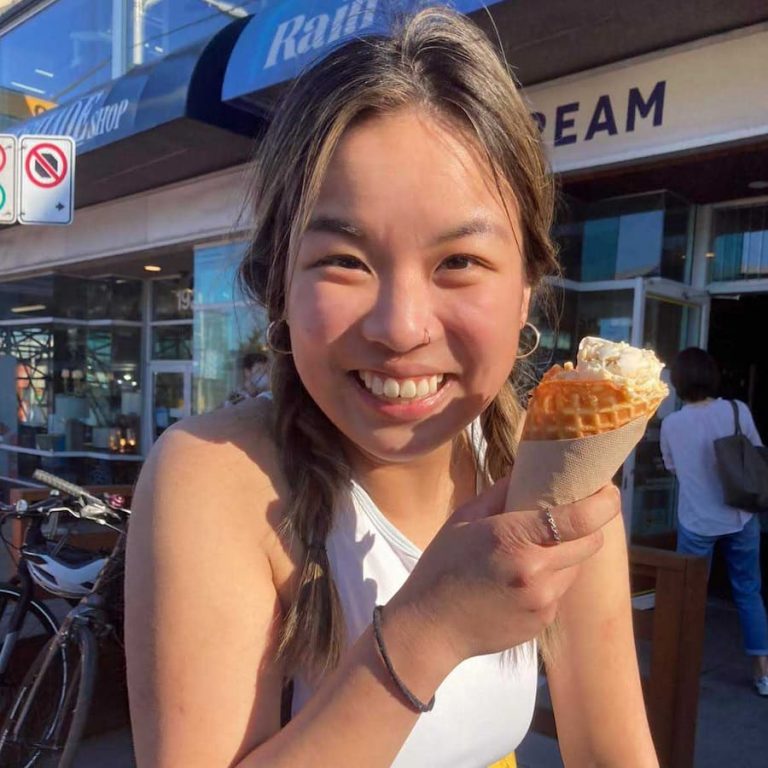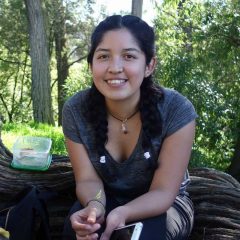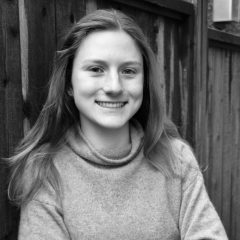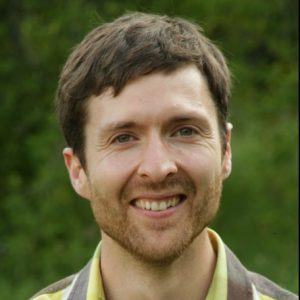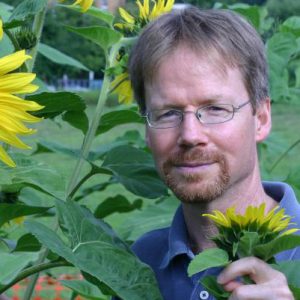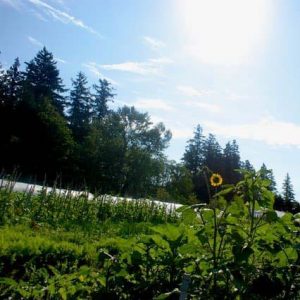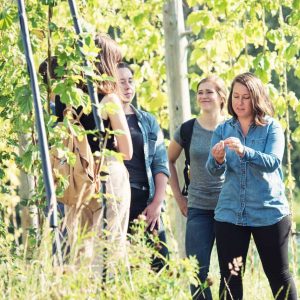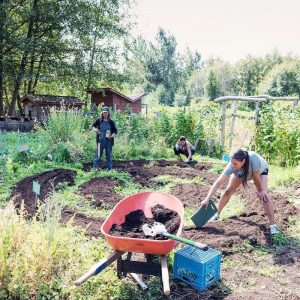Work Learn Profile: Michael Salloum, Communications Work Learn Student
What is your position title?
I was an Academic Communications and Knowledge Mobilization Assistant at the Farm.

What did you work on in this role?
I was responsible for working with all the different departments that collaborate at the UBC Farm to promote the research and outreach programs that we offer. As part of my role, I was also responsible for creating code for the new Farm website and training staff in html coding. I also had to create many different posters and promotional materials for all of the works we’ve done. The largest part of my role beyond this was doing all social media promotions and creating our weekly newsletters for the Farm. Some of the other projects I’ve worked on include creating and producing our well-received online webinar series during the summer of 2020, Building Resilient Food Systems During COVID-19 and Beyond, photography and planning for our entrepreneurship series, Feeding Growth, and working on research briefs through the BC FoodWeb.
It’s a really unique position to be in, because you get to have your finger on the pulse on all different projects running out of the Farm and you also get to be part of every team. That’s really unique.
What did you learn in this position?
This position needs a great variety of skills to be successful and while that takes time for anyone to learn, it is hugely rewarding. During the course of this position, I learned how to design and code for our website in HTML, CSS, and basic Java. I also learned how to use several design software within the Adobe Suite, specifically, Adobe Photoshop, InDesign, and Illustrator. I also learned how to use several social media platforms like MailChimp, Facebook, Twitter, and Instagram to promote our programs to targeted populations. Learning how to effectively target people for ads using social media and also how to draft posts and promotions in a way that leads to the greatest engagement was a huge part of the role. I also learned some great professional team skills like creating effective workflow plans, organizing meetings, and working with multiple supervisors/groups. Even after two years in the position, during the summer of parting year, I also learned how to use online platforms to host widely successful, informative, and inclusive webinars.
This is just a small part of what I learned in this position. It’s honestly been the most rewarding position I’ve held in my time as a professional. I really feel if you’re open to learning, there is so much you can gain out of this position.
Why does this work matter?
I think it’s easy to think that if you’re part of the communications team, most of what you do is to work on social media and promote our work. However, I felt as if my role went beyond that. I felt as if my role was really more about being able to effectively communicate knowledge from the Farm to the public and try and increase engagement within the food system. The work and different projects I’ve assisted on during my time here, have helped our community grow and even further touched many lives. I was able to teach others about the Farm and learn so much about how people think about the food economies they lived in in fun and creative ways on social media and in person. The work we do is so crucial because it is what will help the amazing experts that work with the Farm apply their work to change the daily lives of people in the country. I get to help in that, that’s why the work matters.
What would you tell a new student taking on this role? Or what do you wish you had known?
Be patient! There is so much to do and so much to learn like I said before. I think I was a bit overwhelmed when I started in 2018 because I didn’t realize just how much our role encompasses and how little 10 hours/week is to accomplish it. You should not try and jump into your work and tasks before learning how to use the skills needed effectively. I understand it’s tough for people to spend their time learning the job rather than doing it, but you will not be efficient working here if you don’t know 100% what you’re doing. Efficiency is key when trying to accomplish your tasks within the 10 hours you have per week.
Finally, just ask your colleagues and talk with them. The Farm community is so amazing and supportive. They will always help you learn and work through whatever difficulty you may have. Use it!
What should people know about the UBC Farm that they probably don’t know?
We are not just a Farm that grows food and raises chickens. The Farm is so much more than that! We are a fully operational organic farm running in the heart of Vancouver that works with farmers, researchers, activists, and community partners across the globe to do the work we do. We run community education programs; we perform groundbreaking food systems and biological systems research; and we create spaces to involve BIPOC groups. We also grow food, run markets, and teach food workshops. My gosh, the Farm is a playhouse! There is simply not shortage of cool things that we do that the public may not be aware of.
What’s your favourite thing to do at the UBC Farm?
I love working for the Farm during the summer because it is our growing season. During the growing season, there is so much you can do like attend the Saturday Farm markets which always have a homey community feel. More importantly, we also start doing Friday lunches where all of our staff meet up on Fridays after harvest to cook a huge meal.
I love Friday lunches! They remind me of cooking at home with family and the feasts we get to eat are never disappointing and it’s all vegetarian! It’s a farmer’s/cook’s dream.
What other roles have you held at CSFS at the UBC Farm?
I’ve been part of the communications team for almost 2.5 years, but I have been working with the Farm for almost 5 years. I started working here as a volunteer for the Urban Farmers, Indigenous garden programs, and annual events we ran here.
Currently, through the Farm, I work with Indigenous youth in one of our Indigenous programs called Culturally Relevant Urban Wellness.
